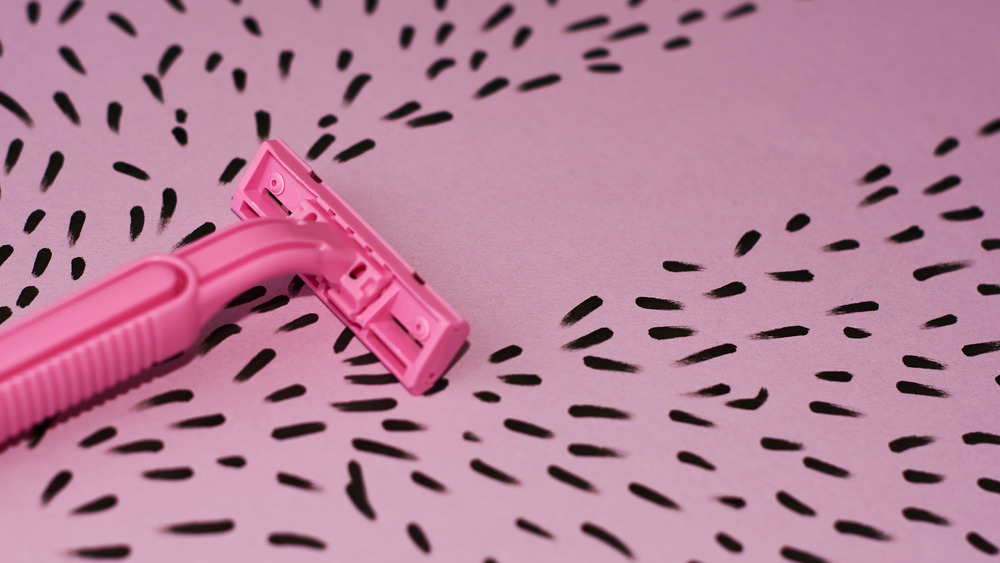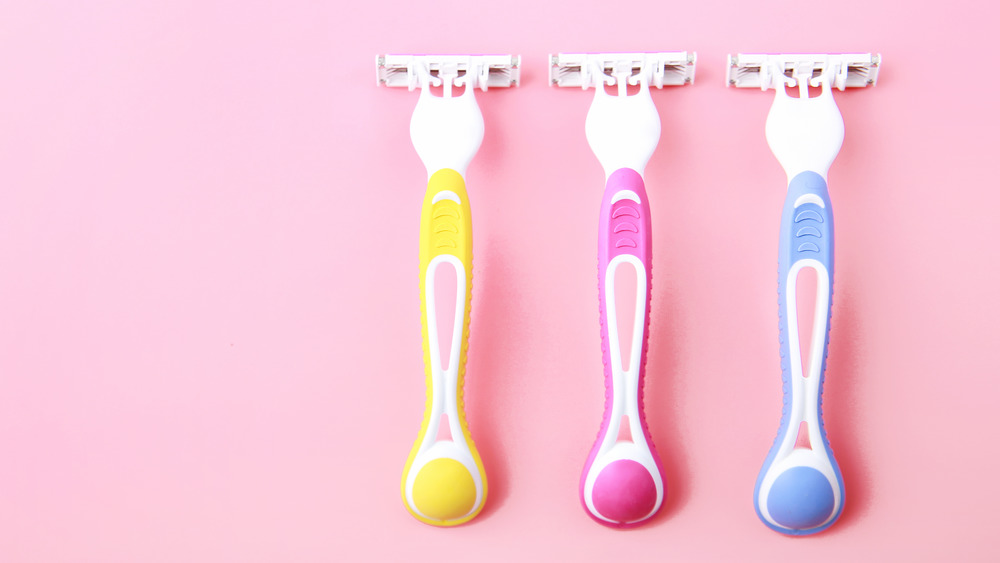Fact Or Fiction: Shaving Makes Your Hair Grow Back Thicker
One common medical myth that still remains in wide circulation today is that shaving your body hair will actually cause it to grow back faster, darker, and thicker. Well, it turns out that's simply not true! Scientific evidence dating back almost 100 years dispels the very notion that shaving has any effect on the subsequent growth of hair (via The BMJ).
Let's begin with a better understanding of the hair growth cycle. It takes about one month for your body hair to reach its full length, which is why, no matter how long you let it grow, you're unlikely to ever be able to braid unwanted body hair (via Healthline). There are two distinct hair structures that it's important to be familiar with; the follicle and the shaft (via WebMD). The hair follicle is a tunnel-like structure within the skin layers. The base of the follicle contains capillaries that nourish the living hair cells. Then there are two sheaths, an inner and outer one, which surround the follicle. The sheaths act to protect and form the growing hair shaft. The hair grows from the root, passes through oil and scent glands, and extends out from under the skin, at which point the cells are no longer alive. So when you're shaving your hair, you are simply cutting off the dead hair, not the underlying still very alive cells, and thus it's simply not possible to affect the texture, color, or rate of growth.
This is why regrowing hair may seem darker, thicker, and more coarse
If you still swear by the visible changes in new hair growth you're experiencing after a shave, you're not totally wrong. The truth is that unshaven hair tends to be lighter and has a finer tip than newly growing hair. The darker shade of hair regrowth can be attributed to the lack of sun exposure, soap use, and other everyday chemicals and products which can lighten hair over time. The darker shade can also be explained because the regrowing hair is thicker than unshaven hair, but not because it is growing back thicker (again, simply because it has yet to be exposed to the natural elements and conditions which will make it thinner and less blunt over time.) Dr. Mona Gohara, a board-certified dermatologist, tells Well+Good, that the hair, "can feel stubbly and therefore thicker. But it's not actually thicker or growing back any faster." In fact, if you stop shaving, your hair will taper as usual.
Since shaving simply cuts the hair from the skin out, it is not affecting the hair follicles themselves in any way. The same is not true for alternative hair removal methods such as waxing or recurrent plucking. These methods tend to alter the hair follicles, making them thinner and smaller, which can eventually lead to the hair ceasing to grow.
How to shave properly
The American Academy of Dermatology Association recommends the following tips when it comes to shaving hair. First, start with wet and clean skin. Wetting your skin in the shower or sink will soften the hair and remove any excess oil and dead skin cells which may clog your razor. Next, they recommend applying a shaving cream or gel and shaving in the direction of hair growth. This is an important tip as it can help prevent razor bumps and burns. It is also recommended that you rinse the head of your razor after each swipe to remove hair and make sure the blade does not clog, which can lead to those pesky skin nicks you get from time to time.
So lather up and don't waste your time thinking shaving will turn you into the woolly mammoth because it simply will not.



